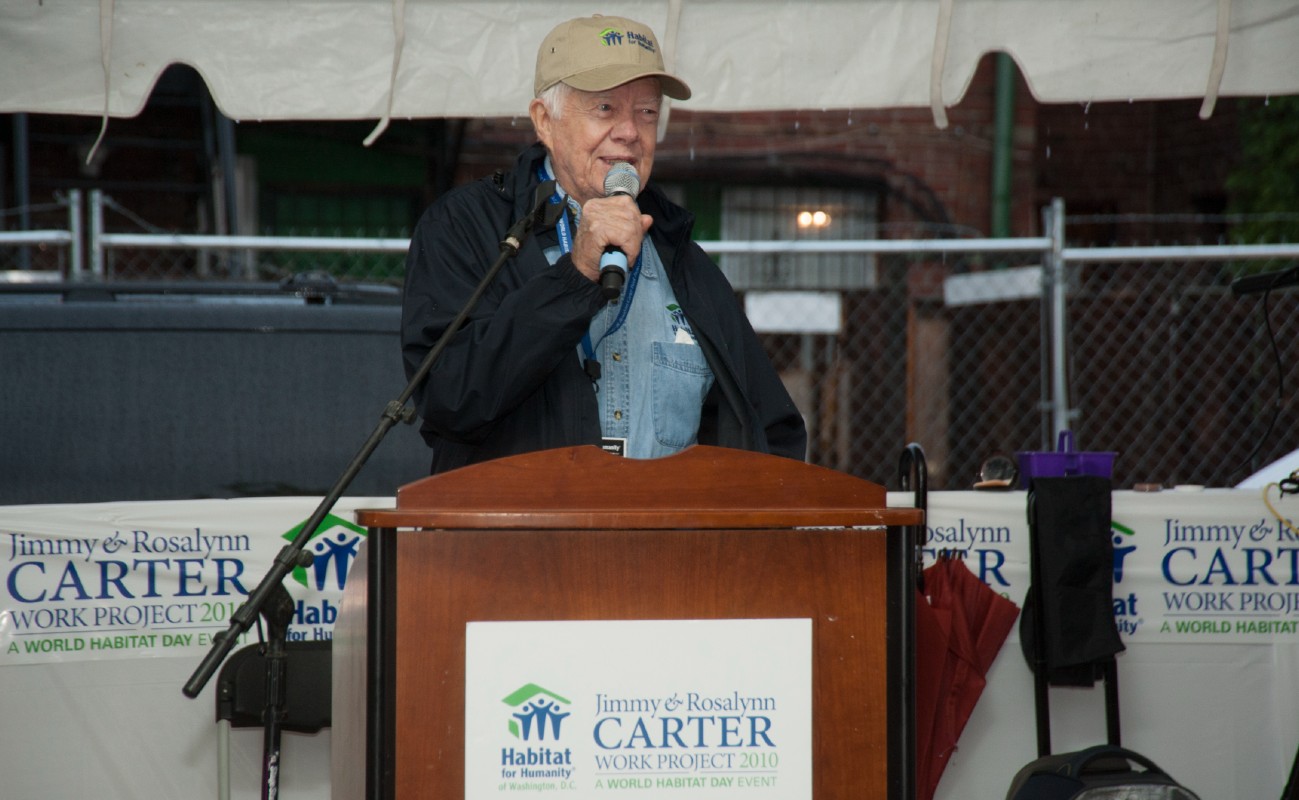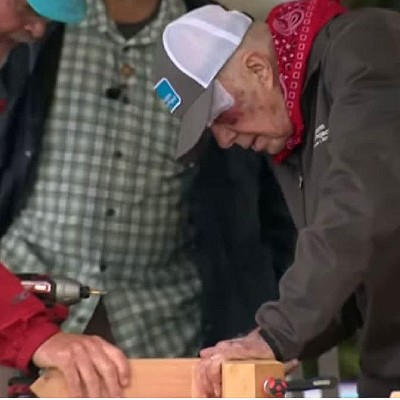
By Andy Brack, editor and publisher | Former President Jimmy Carter, now 97, was born when trains were a common form of transportation.
 There were no interstates, information superhighways, fax machines, computers, emails or texts. Social media and instant communication to the other side of the world were the things of science fiction. Cars broke down a lot. Phones were elementary and not ubiquitous. Times were hard. A Depression was around the corner.
There were no interstates, information superhighways, fax machines, computers, emails or texts. Social media and instant communication to the other side of the world were the things of science fiction. Cars broke down a lot. Phones were elementary and not ubiquitous. Times were hard. A Depression was around the corner.
In An Hour Before Daylight, Carter described struggles on farms across the South like the one where he grew up outside of Plains, Ga.:
“Despite the extreme rural poverty that prevailed at the time, Southern farm population increased by 1.3 million between 1930 and 1935, as desperate people lost their jobs in failing factories, left their urban homes, and eventually wound up in places like our community.”
In this environment, Carter grew to form a value system based on family, community and church. Then, as now, he believes in things that may seem old-fashioned in today’s interconnected world — faith, honor, doing the right thing, helping others and moving forward for the betterment of all.
Carter, governor of Georgia from 1971 to 1975, swept into the presidency in 1977 after the international embarrassment of the Watergate scandal when Americans were looking for a decent man to be president. A Democrat, he carried the South and much of the Northeast, but failed to win states west of Missouri, other than Texas and Hawaii.
But Carter’s presidency didn’t set Washington on fire as he often didn’t play by its rules. By today’s standards, that would make him popular, but those were different times. Carter was an outsider when Republicans and Democrats cozied up to one another and lobbyists and played an inside game even more out of the sunlight than today. It didn’t help that the country struggled to get out of an economic malaise and an energy crisis.
Yet Carter had successes. He pushed energy conservation during a time of profligate energy waste and when no one had heard of climate change. He promoted airline deregulation. He created the federal departments of education and energy as cabinet-level agencies. He boosted funding for Head Start and other safety net programs. In the arena of foreign policy, he was widely credited as getting leaders of Egypt and Israel to move toward Middle East peace through the Camp David accords.

After losing the 1980 election to Republican Ronald Reagan, Carter didn’t sit idly by drinking tea in the breeze. He embarked on a post-presidential career that set the gold standard for public service. Not only has he written more than 30 books — he had to make a living somehow — but he established the Carter Center in Atlanta, which promotes peace and human rights and monitors international elections. One of its most astounding successes has been leadership in a campaign to eradicate water-borne Guinea worm disease which once affected millions. In 2020, only 27 cases were documented worldwide, according to the World Health Organization.
During his life after the presidency, Carter has often been on construction sites helping to build houses for Habitat for Humanity. Internet memes crop up periodically that show Carter hard at work on a house just days after a fall that left him with a black eye. He even showed up for work while recovering from cancer. That’s toughness. That’s resilience. That’s commitment.
As the nation’s president who has lived longest — and who has had the longest post-presidential career — Jimmy Carter continues to inspire. He’s a quiet force whose strength, faith and goodwill are a testament to what’s still right in America. Learn from him.
Happy birthday, Mr. President!
Carter on his 27th annual Carter Work Project on World Habitat Day, Oct. 2, 2010. National Archives photo.
- Have a comment? Send to: feedback@statehousereport.com.















 We Can Do Better, South Carolina!
We Can Do Better, South Carolina!